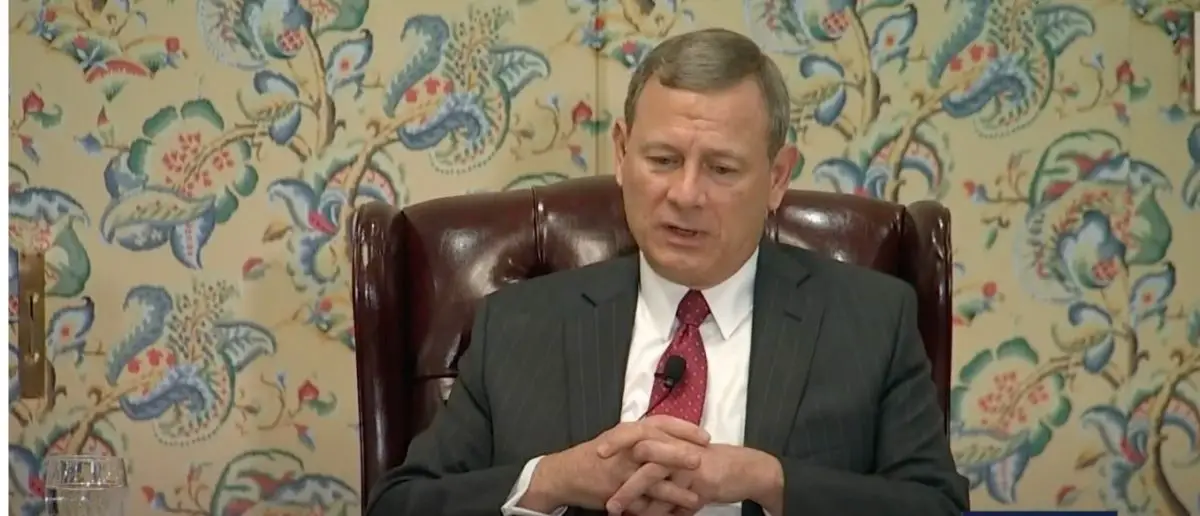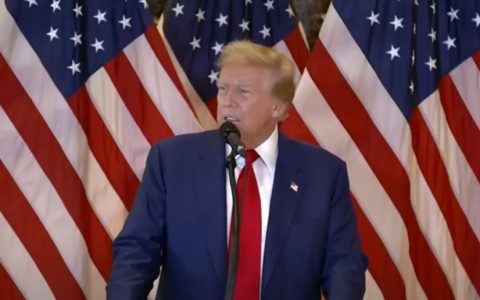
The highest authority of the law is under attack. Now the alarms are sounding.
And the Supreme Court Chief Justice made a shocking admission about the fate of the Court.
Supreme Court Chief Justice John Roberts issued a stern warning Tuesday, emphasizing the critical need to protect “judicial independence” just weeks before President-elect Donald Trump’s inauguration.
Roberts laid out his concerns in his annual report on the federal judiciary, warning that the judicial branch’s role is not to satisfy everyone.
“It is not in the nature of judicial work to make everyone happy. Most cases have a winner and a loser. Every Administration suffers defeats in the court system—sometimes in cases with major ramifications for executive or legislative power or other consequential topics,” Roberts stated in the 15-page report.
He underscored the importance of respecting court rulings, regardless of their popularity, noting, “Nevertheless, for the past several decades, the decisions of the courts, popular or not, have been followed, and the Nation has avoided the standoffs that plagued the 1950s and 1960s.”
Without naming specific political figures, Roberts criticized elected officials for hinting at disregarding court decisions. “Within the past few years, however, elected officials from across the political spectrum have raised the specter of open disregard for federal court rulings,” he wrote.
“These dangerous suggestions, however sporadic, must be soundly rejected. Judicial independence is worth preserving. As my late colleague Justice Ruth Bader Ginsburg wrote, an independent judiciary is ‘essential to the rule of law in any land,’ yet it ‘is vulnerable to assault; it can be shattered if the society law exists to serve does not take care to assure its preservation.’”
Roberts urged Americans to treasure this foundational principle: “I urge all Americans to appreciate this inheritance from our founding generation and cherish its endurance.”
Referencing Chief Justice Charles Evans Hughes, Roberts highlighted the necessity of collaboration among the branches of government to safeguard judicial impartiality and independence. “Our political system and economic strength depend on the rule of law,” he added.
Roberts’ leadership has seen the Supreme Court take on pivotal cases with profound political implications.
His opinion in a landmark immunity case and another decision blocking attempts to disqualify Trump from the ballot were celebrated as victories for the Republican nominee. Predictably, Democrats voiced sharp opposition, with Joe Biden later pushing for term limits and stricter ethical standards for justices.
Meanwhile, Democrats and even one Republican lawmaker last year called for Biden to ignore a Trump-appointed judge’s decision to revoke FDA approval for the abortion pill mifepristone. Biden resisted bypassing the ruling via executive action, and the Supreme Court ultimately granted a stay, allowing the drug to remain available.
The court’s conservative majority has also curtailed Biden’s executive power, ruling last year that his sweeping student loan forgiveness plan was unconstitutional.
Roberts, no stranger to clashes with politicians, famously rebuked Trump in 2018 after the president labeled a judge who ruled against his asylum policy an “Obama judge.” In 2020, Roberts also condemned Senate Democratic leader Chuck Schumer for inflammatory remarks during a high-profile abortion case.
Tuesday’s report opened with a historical anecdote about King George III stripping colonial judges of lifetime appointments — a stark reminder of the judiciary’s fragility. With Trump poised for a potential second term, Roberts’ court, bolstered by three Trump-appointed justices, could again play a decisive role in legal battles over a new conservative agenda.
Roberts emphasized that even controversial rulings demand respect. He pointed to the historic 1954 Brown v. Board of Education decision, which required federal enforcement against staunch opposition from southern governors, as an example of the judiciary’s resilience.
“Attempts to intimidate judges for their rulings in cases are inappropriate and should be vigorously opposed,” Roberts stated, cautioning public officials against rhetoric that could incite dangerous reactions.
Threats against federal judges have surged, tripling in the past decade, according to U.S. Marshals Service data. Roberts cited recent k*llings of state court judges in Wisconsin and Maryland to underscore the gravity of the issue.
“Violence, intimidation, and defiance directed at judges because of their work undermine our Republic, and are wholly unacceptable,” he wrote.
Roberts also warned about the dangers of disinformation, particularly on social media, which he said can amplify distortions and even serve as a tool for “hostile foreign state actors” to sow division and undermine judicial independence.
Stay tuned to the DC Daily Journal.





